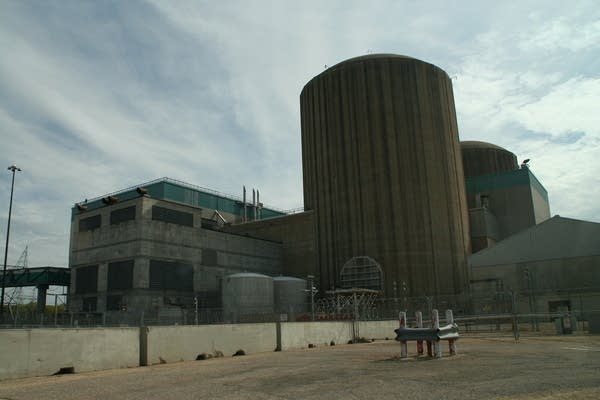Federal government clears path for Prairie Island extension
Go Deeper.
Create an account or log in to save stories.
Like this?
Thanks for liking this story! We have added it to a list of your favorite stories.

The Prairie Island nuclear power plant is a step closer to winning approval to operate for another 20 years.
The federal Nuclear Regulatory Commission announced Tuesday that it has found no environmental concerns that would prevent extending the life of the plant near Prairie Island.
Xcel Energy has sought for three years to get permission to extend the life of the twin reactors, which are 37 and 38 years old. The approval process required Xcel to show that it would replace or safely manage the aging equipment.
The company plans to invest more than $1 billion to prepare the plant to operate until 2034.
Turn Up Your Support
MPR News helps you turn down the noise and build shared understanding. Turn up your support for this public resource and keep trusted journalism accessible to all.
Xcel's nuclear plant at Monticello has already received its 20-year license extension.
The Nuclear Regulatory Commission approval comes as nuclear power is under increased scrutiny following the disaster at the Fukushima Daiichi plant in Japan.
Safety concerns have focused on backup power systems to cool the reactor core when the electricity is knocked out.
Xcel Energy's Director of Nuclear Regulatory Policy, Terry Pickens, said the Prairie Island plant has a backup for the backups.
If the plant suffers an extended blackout, and the normal safety equipment, including diesel generators and batteries are not available, Prairie Island would rely on diesel-driven water pumps, he said.
"We can draw water from Mississippi, and we have them set up so we can operate those for long period of time," Pickens said.
In a first, the Nuclear Regulatory Commission worked directly with the Prairie Island Indian Community, the plant's nearest neighbors, While preparing an environmental study.
The NRC agreed to formally accept the community's input and to pay special attention to its concerns, which include long-term exposure to radiation and high-voltage power lines. The tribe also is worried about what it describes as inadequate monitoring of radiation releases, and the ongoing storage of radioactive waste on site.
On some issues, the NRC and the Prairie Island Community could not come to agreement, and the report simply presents the views of the community with little comment, Tribal attorney Phil Mahowald said.
"We still have our concerns," Mahowald said. "We still don't believe they've been adequately recognized much less mitigated, but that's the way things stand."
Over the next 20 years, Xcel will need to store more nuclear waste on site in 34 additional casks on a concrete pad near the Mississippi River.
Such on-site, above ground storage is supposed to be temporary. But the disaster at the spent fuel pool in Fukushima lead some observers to urge quicker transfer of waste out of spent fuels and into dry casks.
The passive cooling systems of the dry casks have their advantages, said David Lochbaum, director of nuclear safety at the Union of Concerned Scientists, a watchdog group. That's because the air-cooled system relies on the chimney effect: warm air rises, sucks in more colder air from the bottom to remove the heat.
"There's not much that can go wrong with a dry cask, and even if it does, there's such a small amount of radioactive material in the cask that the size of the radioactive cloud is much much smaller than that that can come out of a spent fuel pool," Lochbaum said.
Final approval of the license extension is expected this summer, and then Xcel will apply for permission to boost power from the plant by 17 percent. Already the plant produces enough to power about one million homes.
Xcel will begin replacing and refurbishing equipment during over the next several years, beginning in 2012.



